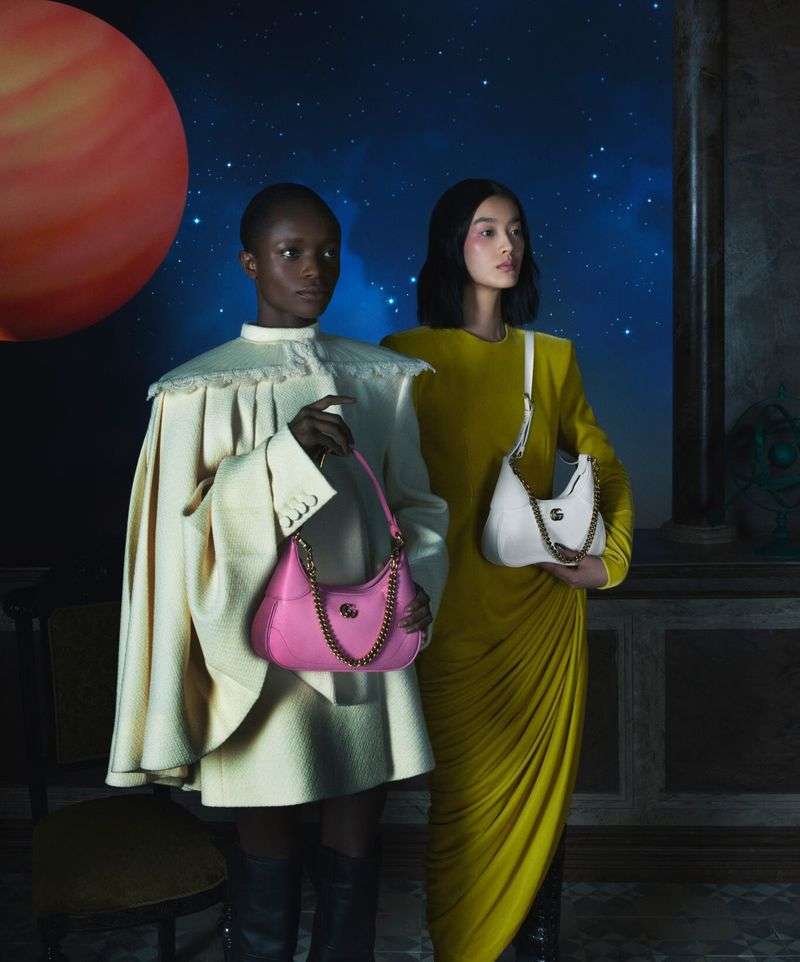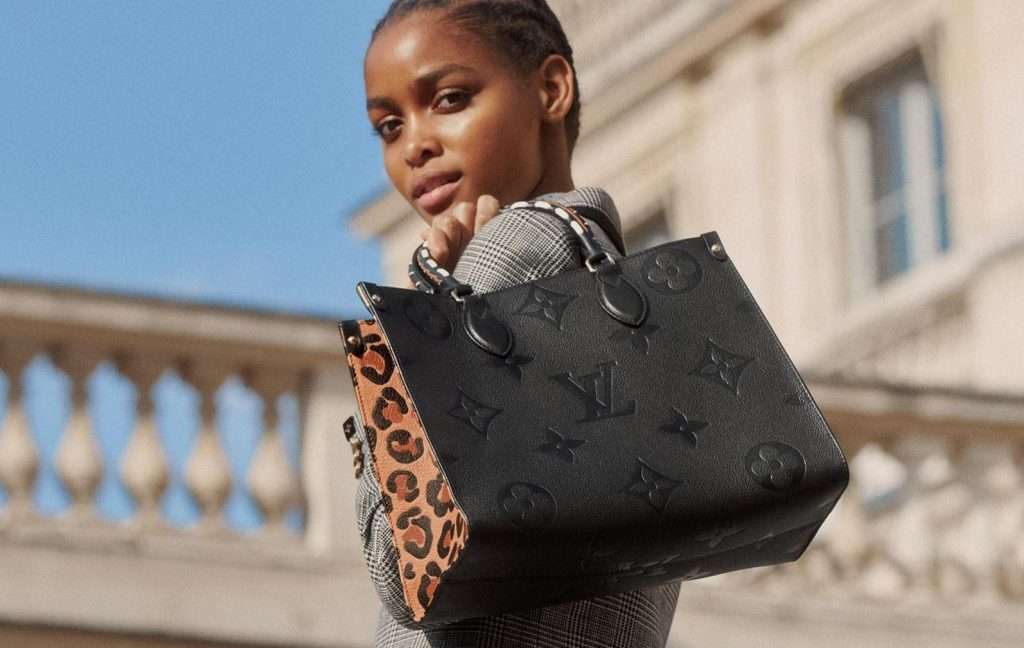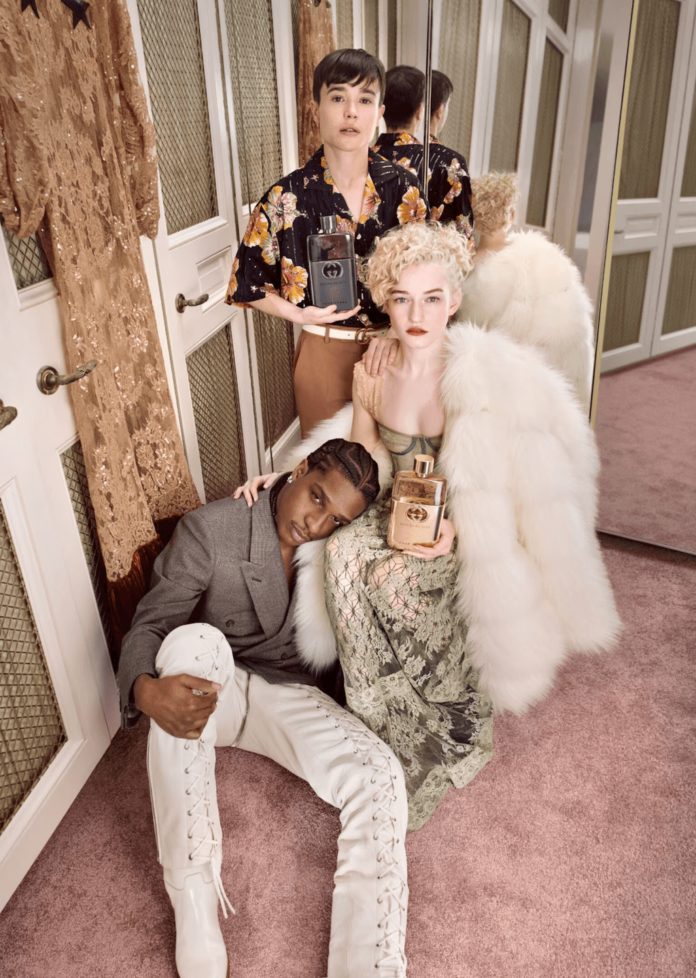Gucci Continuum launches this week with the aim of increasing the luxury label’s circularity commitments while making deadstock fabrics and previous-season pieces available to up-and-coming young designers.
Ten brands and designers have been selected to participate in the Gucci Continuum, with the Italian luxury label’s textiles available through the Gucci Vault. The participating designers, which include Alice Pons, Alpha Industries, Call of the Void, Collina Strada, DRx Romanelli, EGONLAB, Hodakova, Rave Review, Slam Jam, and Vans, will showcase their designs featuring the Gucci deadstock.
Gucci launched a multi-pronged Circular Hub last month based in Italy that includes the Continuum program in its offerings.
Gucci’s Circular Hub
“The fashion industry needs to accelerate and launch serious actions to catalyze deep change, rethinking the way we produce and use resources as well,” Marie-Claire Daveu, Chief Sustainability and Institutional Affairs Officer at Gucci parent company Kering, said in a statement. “The creation of our Circular Hub represents a milestone that goes in this direction. I am extremely pleased that the hub will see the light in Italy, home of some the Group’s strongest and most renowned production hubs and know-how. Joining forces with Gucci for the Circular Hub not only is a testament of collective conviction within the Group, but also an ambitious example to pave the way for other players who will be happy to join in the future, in an open-source perspective.”

Antonella Centra, Executive Vice President, General Counsel, Corporate Affairs and Sustainability at Gucci said the Circular Hub provides the label the responsibility and framework to create “a pathway for the luxury industry of the future.”
“By sharing the same objectives and pooling resources, know-how and synergies, the hub will enable the entire luxury supply chain and especially the small and medium-sized enterprises — the beating heart of our country’s industry — to play an active role, with the innovative spirit that makes Italian know-how unique in the world,” Centra said.
Continuum’s aim is to promote circularity, reduce waste, and educate consumers and the fashion industry on the benefits while spotlighting the designers of tomorrow.
“Circularity promotes a vision that involves the entire production cycle starting from raw materials: it presents a great challenge and an opportunity to make Made in Italy even stronger and more competitive,” Centra said.
“Working on the Gucci Continuum project was a dream,” Hillary Taymour of Collina Strada told Vogue. This is the second time the label has partnered with Gucci. “The story is always in the fabric and being able to recreate Collina pieces in these elevated deadstock fabrications was an honor.”
“For designers and upcycle nerds like us, to work with these vintage Gucci fabrics with so much heritage, has been a dream come true,” Rave Review’s Josephine Bergqvist and Livia Schück told Vogue. The Swedish label, which launched in 2017 is known for its upcycled and collaged pieces. “Turning old textiles into something completely new has always been an endless source of inspiration.”
The deadstock movement
Gucci joins a growing roster of companies recirculating deadstock. The LVMH Nona Source opened its first London showroom last May. It offers a range of deadstock materials available from the luxury Maisons including Louis Vuitton, Christian Dior, Fendi, Loewe, and Givenchy, among others.

Milan-based Mauro Simionato of Vitelli uses textiles made from discarded yarns and selvages from deadstock fabrics.
“We create our own fabrics from deadstock, leftover and end-of-cone yarns, and by using mechanical machinery in unconventional manners. That makes us fabric makers and fashion designers at the same time,” Simionato said.
The trend has hit mainstream labels, too. Last month, iconic shoe brand Dr. Martens announced its Made In England Deadstock collection, finding “new ways to use surplus materials to create waste-defying shoes and boots. This deep respect for materials gives each wearer a unique pair.”
Deadstock represents a major hurdle for the fashion industry as it aims to become more sustainable. The industry produces more than 90 million tons of waste annually, contributing to ten percent of global planet-warming emissions every year. Textile waste accounts for approximately five percent of landfill space according to the EPA.
Gucci’s Continuum comes as the label also announced a partnership resale program with secondhand luxury platform Vestiaire Collective. Gucci Preloved, which also launches this week, will allow consumers to resell their Gucci handbags on the popular secondhand platform in exchange for store credit.
Related on Ethos:


